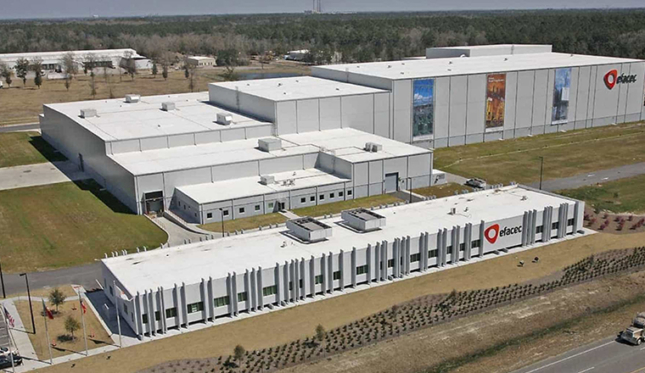Summary
Acquired 50-acre site with rail at no cost to EFACEC
Identified market to recruit and hire 700 workers
Negotiated incentive and expense reduction of $11 million: recruiting and training funds, permit fee waivers, property and income tax abatement, and infrastructure improvement for rail siding.
OBJECTIVE
Identify the optimal location for EFACEC to construct a 470,000 square foot, $170 million production facility to manufacture core-type and shell-type power transformers. Site selection objectives included:
- Locate on a rail line to avoid highway weight and dimensional restrictions on shipments of finished goods weighing up to 650,000 pounds
- Proximity to seaport
- Low land costs
- Low operating costs (taxes, utilities, and wages)
- Minimal weather risk (tornadoes, hurricanes, etc.)
- Minimal seismic risk (earthquakes)
- Desirable labor union environment
- Excellent availability of highly skilled labor
CHALLENGES
EFACEC supplies power transformers to electric utilities for use in large substations, and many of the company’s products are over-sized and overweight. Selected raw materials for the new operation are sourced overseas, and some finished goods are exported. The site chosen for the new manufacturing operation had to be close to a major seaport and located on a rail line. In addition, large power transformers are virtually hand-built to customer specifications, which mandated the need for 700 highly skilled workers drawn from a large, high-quality labor pool.
SOLUTION
EFACEC’s complex site selection requirements were easily modeled in Indsite®, Colliers’ site optimization model. Indsite identified 35 rail-served locations near major container seaports. We compared and stratified the options to identify those with the best labor union environment, the largest pool of well-educated workers, and the lowest propensity of hurricane risk and seismic activity.
RESULTS
![]()

